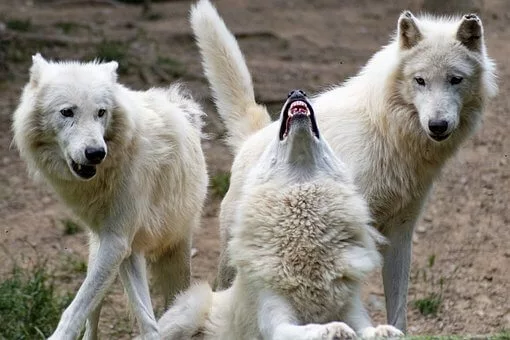Wolves are majestic creatures that have been a part of human history and culture for centuries. In different cultures, wolves hold varying degrees of cultural and spiritual significance. One way in which wolves are celebrated is through naming conventions.
In this article, we will explore the different tundra wolf names in different cultures, their meanings, and the significance of these names.
Tundra wolves, also known as Arctic wolves, do not have specific names as they are a subspecies of the gray wolf and are typically referred to by their scientific name, Canis lupus arctos.
They can also be referred to simply as “Arctic wolves” or “tundra wolves.”
Here are a few examples of tundra wolf names:
- Aurora
- Frostbite
- Glacier
- Iceberg
- Kodiak
- Misty
- Polaris
- Storm
- Tundra
- Winter
Male Tundra Wolf Names
Here are a few examples of Male Tundra Wolf Names/Wolves Names:
- Blaze
- Frost
- Hunter
- Kodiak
- Midnight
- Onyx
- Storm
- Thunder
- Titan
- Winter
Boy Tundra Wolf Names
Here are a few examples of Boy Tundra Wolf Names/Wolves Names:
- Arctic
- Frost
- Hunter
- Ice
- Kodiak
- Midnight
- Onyx
- Snow
- Storm
- Winter
Related: Caucasus Wolf Names
Related: 500+ Wolf Names And Their Meanings (Both Male Wolf Names and Female Wolf Names)
Female Tundra Wolf Names
Here are a few examples of Female Tundra Wolf Names/Wolves Names:
- Aurora
- Blizzard
- Frost
- Glacier
- Ice
- Misty
- Snowflake
- Stormy
- Tundra
- Winter
Girl Tundra Wolf Names
Here are some potential Girl Tundra Wolf Names/Wolves Names:
- Crystal
- Frost
- Glacier
- Ice
- Misty
- Snow
- Stormy
- Tundra
- Winter
- Aurora
Inuit Wolf Names
The Inuit people, who inhabit the Arctic regions of North America, have a rich and varied language that includes several words for wolf. Inuit wolf names often describe the wolf’s physical characteristics or its behavior.
For example, the name Amarok, meaning “the wolf that hunts alone”, is a powerful and solitary wolf. Another Inuit name, Aklaq, means “brown bear”, which refers to the wolf’s brownish coat color. The name Nukilik, meaning “one who is intelligent”, is given to wolves that display cunning or intelligence.
Siberian Wolf Names
In Siberian culture, wolves have been revered and respected for centuries. They were often seen as a powerful symbol of strength and loyalty. Siberian wolf names often describe the wolf’s qualities or behaviors.
For example, the name Volk, meaning “wolf”, is a popular name given to Siberian wolves. Sharik, meaning “little ball”, refers to the playful nature of young wolves. Sivka-Burka, meaning “wood nymph”, is a name given to wolves that are fleet-footed and nimble.
Scandinavian Wolf Names
Wolves have played a significant role in Scandinavian folklore and mythology. They are often portrayed as powerful and cunning creatures. Scandinavian wolf names often describe the wolf’s behavior or its connection to the supernatural.
For example, the name Fenris, meaning “frost giant”, is the name of a wolf in Norse mythology that is said to be the offspring of the god Loki. Sköll and Hati are two wolves in Norse mythology that are said to chase the sun and the moon, respectively.
Native American Wolf Names
Wolves hold a special place in Native American culture and spirituality. They are often seen as symbols of strength, loyalty, and protection. Native American wolf names often describe the wolf’s physical characteristics or its qualities.
For example, Amarog, meaning “wolf”, is a popular name given to Native American wolves. Leloo, meaning “wild”, is a name given to wolves that are free-spirited and independent. Maiyun, meaning “forever”, is a name given to wolves that are faithful and loyal.
Conclusion
Tundra wolf names are an important part of different cultures and traditions. They not only provide insight into the wolf’s characteristics and behavior but also reveal the cultural and spiritual significance that these animals hold.
Understanding wolf names in different cultures helps us appreciate the important role that wolves have played in human history and ecology.
It is crucial to continue to protect and preserve wolf populations and their habitats so that future generations can continue to appreciate the significance of these magnificent animals.
